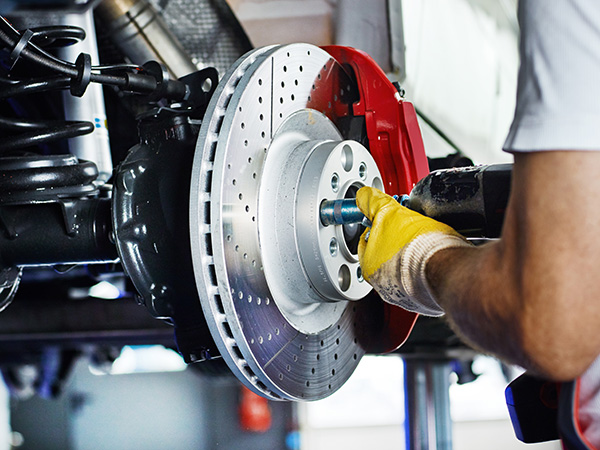
BMW vehicles are engineered for performance, safety, and an enjoyable driving experience. However, even the most advanced braking systems can develop issues over time, such as squeaking, squealing, or reduced responsiveness. While brake noise isn’t always a sign of danger, it often indicates wear or other problems that need attention. Proper maintenance not only keeps your BMW’s brakes quiet but also ensures reliable stopping power and overall vehicle safety.
This comprehensive guide explains why brake noise happens, how to maintain smooth braking performance, and when to seek professional help.
Why BMW Brakes Require Special Care
BMWs are equipped with high-performance braking systems designed to match the car’s power and handling. Unlike standard vehicles, they often feature ventilated discs, premium brake pads, and advanced electronic assist systems.
Because BMW brakes are designed for precision, they also require regular maintenance to perform optimally. Neglecting these components can lead to noisy brakes, uneven wear, and longer stopping distances — all of which compromise safety and driving comfort.
Common Causes of Brake Noise
Brake squeaks and squeals are frustrating but relatively common, especially in performance vehicles like BMWs. Understanding the reasons behind the noise can help you determine whether it’s harmless or needs immediate attention.
Worn Brake Pads
As brake pads wear down, the built-in wear indicators emit a high-pitched squeal to signal that it’s time for replacement. Ignoring this warning can lead to rotor damage and reduced braking performance.
Glazed Pads or Rotors
Excessive heat from aggressive driving or frequent braking can cause the pads or rotors to become glazed. This hardened surface creates squealing noises and decreases braking efficiency.
Dust and Debris Build-Up
BMW brake pads often produce fine brake dust. When this accumulates on rotors, it can lead to temporary squeaking during light braking.
Low-Quality Replacement Parts
Using non-OEM pads or rotors may save money upfront, but they’re more prone to vibration and noise. Genuine BMW parts are engineered for your vehicle’s braking system and minimize these issues.
How to Maintain Brake Performance
Quiet, responsive brakes require consistent care. Following these maintenance practices will extend the lifespan of your braking components and keep your BMW’s stopping power sharp.
Schedule Regular Inspections
BMW recommends routine brake inspections at least once a year, but if you drive in heavy traffic, mountainous areas, or take spirited drives, more frequent checks are ideal. During an inspection, technicians examine pads, rotors, calipers, and hydraulic lines to ensure everything works as designed.
Replace Pads and Rotors Together When Needed
Replacing only the pads without resurfacing or replacing worn rotors can cause uneven braking, vibrations, and persistent noise. High-performance vehicles like BMWs benefit from replacing these parts together for optimal smoothness and safety.
Keep the Brake System Clean
Brake dust naturally builds up, but regular cleaning helps reduce noise and protects against premature wear. Professionals use specialized cleaners to safely remove debris without damaging sensitive components.
Use OEM or Equivalent Quality Parts
BMW braking systems are engineered with precise tolerances. Using OEM pads and rotors or equivalent premium parts maintains the vehicle’s performance while minimizing noise, vibrations, and uneven wear.
Warning Signs That Need Immediate Attention
Not all brake noises are harmless. These symptoms often indicate issues that require professional service right away:
- Grinding noises — Often a sign that pads are completely worn down, allowing metal-to-metal contact.
- Vibrations in the brake pedal — Can point to warped rotors or suspension issues affecting braking performance.
- Soft or spongy brake pedal — May indicate air in the brake lines or failing hydraulic components.
- Pulling to one side when braking — Could suggest caliper problems or uneven brake pad wear.
Ignoring these warning signs can lead to expensive repairs and compromise your safety on the road.
The Role of Driving Habits
How you drive has a direct impact on brake performance and longevity. If you tend to brake hard or frequently, your pads and rotors will wear more quickly and produce more noise.
Consider adopting these habits for smoother, quieter braking:
- Anticipate stops and apply gradual pressure.
- Avoid resting your foot on the brake pedal when driving.
- Downshift carefully when slowing from high speeds to reduce brake stress.
Making small adjustments to your driving style can prolong the life of your braking system and improve overall comfort.
Keep Your BMW’s Brakes Quiet and Reliable With Pete’s, Inc.
If your BMW’s brakes are squeaking, vibrating, or losing responsiveness, it’s time to have them inspected by professionals who understand performance vehicles. At Pete’s, Inc. in San Francisco, CA, we specialize in servicing BMW braking systems with precision and care.
Our team uses advanced diagnostic tools, genuine parts, and proven techniques to restore smooth, quiet, and dependable braking. Schedule your appointment today and experience the confidence of driving a BMW with brakes you can rely on, mile after mile.